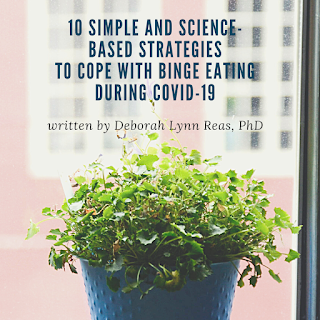Help for the Holidays
By: Dr. Katherine Henderson, CPsych
Co-Director and Co-Founder Anchor Psychological Services
The holiday season in December is often a
stressful time for those struggling with an eating disorder and the loved ones
around them. The holiday season and
Christmas in particular is advertised in the media as a time of joy, gift
giving and receiving, and feeling loved and connected to family and
friends. The media would have us believe
that we all enter into a place of happy, joyful bliss for the month of December
as we celebrate the many different holidays of the month.
The reality is that the pressure of feeling
like the holidays ought to bring joy and bliss only creates stress for many
individuals and family. Not every family
is able to come together and not everyone has family that they feel loved by
and comfortable being together with.
Sometimes we are in a lonely phase of struggle in our lives, feeling
disconnected from friends and family.
Even when we do have family we are able to be with, the many events and
expectations can be exhausting and overwhelming.
When you have an eating disorder or a loved
one has an eating disorder the challenge of the holiday season increases. Not only do you feel pressure to be around
and express joy and happiness with others, much of the celebration centers
around food and food is a place of challenge and distress.
Try some of these strategies this year to help
you survive the holidays:
·
Start by being realistic about
your December, remind yourself that the media distorts not only body image, but
it creates an unrealistic image of “happiness in the holidays”. For many, the holidays are a much more stressful
time of the year.
·
Plan time that is “me
time”. Whether it is 5 minutes or 5
hours, plan some moments every day and each week that will help you take a
moment to relax and take a break from the stress and expectations that surround
you. This could be a 5 minute cuddle with your pet; 15 minutes reading your favorite
book or doing a puzzle; a half hour soak in a bubble bath; a few hours getting
a manicure and pedicure; or going out with a friend for a walk or tea.
·
Knowing that food and eating
generates stress for the individual struggling with an eating disorder and
those who love and support that person, plan how to make meals less stressful. Families
we have worked with have found some of the following to help: inviting fewer
people to the special meals, planning a meal that allows the person struggling
to succeed, being strategic about who sits where, creating a policy of no food
or body image talk at the table;
creating plans to redirect “great aunt Hilda” who always says something
triggering.
·
Knowing that food and eating
generates stress, create new traditions and new ways of being together that are
not focused on food so that everyone can feel a part being together. Have a family and/or friends snowball fight,
build a snowman or snowwoman together, go for a walk, sit around the fire
without food, play a board game, sing karaoke, go bowling. The list is endless,
find your creativity to connect in ways that do not include food.
·
Start new traditions that
promote positive mental health and well being for all:
o
Positive affirmation traditions: say something nice or that you appreciate
about the person to your left or right (note be sure that it is clear this is
not to be about body image related things)
o
Share what you are thankful for
this year.
o
Find the best media story that
promotes caring, compassion, and self-acceptance.
o
Share your rose and thorn: What is something that made you happy today;
what was something difficult or challenging today
Wishing you a few moments of
self-acceptance and self-care this holiday season!


Comments
Post a Comment